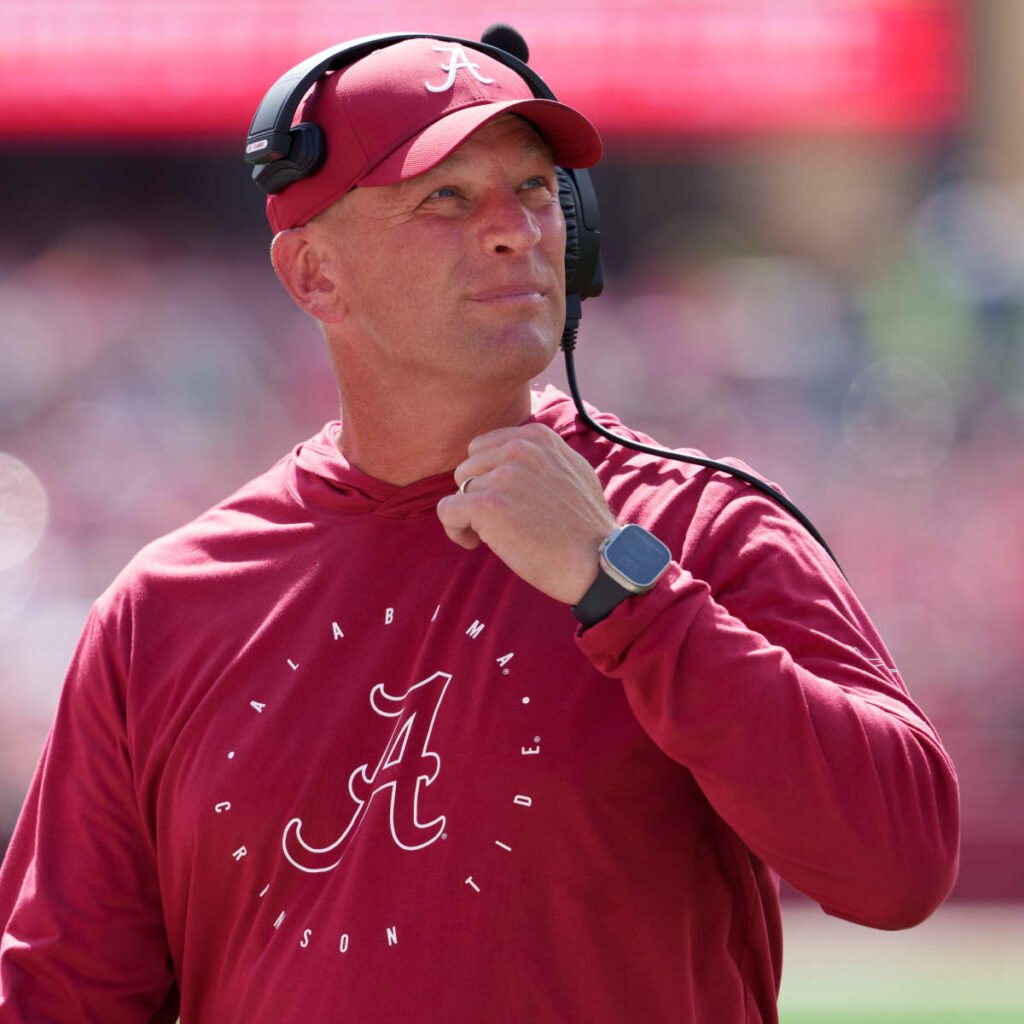“A man who was handed Saban’s throne just walked away from it. Why?”
—
By: Crimson Chronicles Blog | June 8, 2025
The college football world was blindsided this morning when news broke that Alabama Head Coach Kalen DeBoer has resigned—just 17 months after inheriting the most powerful throne in college football from the legendary Nick Saban.
Yes, you read that right. The man chosen to carry the greatest torch in college football just dropped it mid-race. And now, Tuscaloosa is stunned, confused, and asking one burning question: Why?
This isn’t just a headline. It’s a reckoning.
When DeBoer arrived in January 2024, he was hailed as a genius offensive mind, a master tactician, and a “cultural fit” who could soften the post-Saban turbulence. He was calm, articulate, methodical—everything Alabama thought it needed to move forward. And yet, after just one full season and a rocky offseason, he’s stepping down?
Let’s unpack the layers. Because this isn’t just a football story. This is a human story. A story of pressure, power, and the unforgiving glare of a program that defines perfection.
—
Chapter 1: The Shadow of Saban
Every coach who replaces a legend faces pressure. But replacing Nick Saban at Alabama? That’s not pressure—that’s walking a tightrope over a volcano with the ghost of seven national championships whispering in your ear.
Insiders say DeBoer never truly felt like the guy. He was the next guy. The bridge. The caretaker. Every press conference, every play call, every recruiting visit was compared to the gold standard left behind.
“He couldn’t breathe,” said one staffer anonymously. “He couldn’t win over the machine—because the machine wasn’t ready to be led by anyone new.”
—
Chapter 2: The Locker Room Cracks
While DeBoer kept a composed face in public, locker room reports paint a more complex picture. Players were divided. Some missed Saban’s iron fist; others struggled with DeBoer’s calmer, less intense approach. Sources revealed that key upperclassmen didn’t buy into his leadership—despite DeBoer’s efforts to modernize the culture.
Morale was shaky. Chemistry was off. And after a 10-3 season—a nightmare by Alabama’s standards—the whispers of unrest became roars.
—
Chapter 3: Burnout in the Digital Age
But here’s what few understand: coaching Alabama in 2025 is not what it was in 2007. In the era of NIL, 24/7 recruiting cycles, transfer portals, and toxic online noise, the job has evolved into a hyper-speed treadmill. One former SEC coach described it best:
> “You’re not just coaching 18-year-olds. You’re managing CEOs, brands, agents, parents, and fanbases addicted to winning.”
It was too much. And it wore DeBoer down.
—
Chapter 4: The Exit Nobody Saw Coming
This morning, in a brief but emotional meeting with team leaders, DeBoer announced his resignation. No scandal. No firing. Just a man walking away from a job that millions would die for—but few could survive.
The official line? “Personal and professional clarity.”
The real story? An unrelenting system that devours even the best.
—
What Now for Alabama?
Who steps up? Will they chase another proven winner? Or bet big on a bold, young name? The Tide’s next move will redefine the SEC—and maybe all of college football.
But today, it’s not about the next chapter. It’s about a surprising and sobering truth:
Even the chosen one can choose to walk away.
—
M
oral of the story?
Power isn’t always worth the price. Even in Tuscaloosa.

